Top-Rated Debt Collection Agency in Ghana
Your trusted Debt Collection Agency in Ghana. Submit your claim effortlessly for prompt, reliable recovery. Dive into our comprehensive guide to grasp Ghana's local debt collection practices.






The ultimate guide about debt collection in Ghana
Why you can trust this guide
At Debitura, we uphold the highest standards of impartiality and precision to bring you comprehensive guides on international debt collection. Our editorial team boasts over a decade of specialized experience in this domain.
Questions or feedback? Email us at contact@debitura.com — we update this guide based on your input.
Debitura By the Numbers:
- 10+ years focused on international debt collection
- 100+ local attorneys in our partner network
- $100M+ recovered for clients in the last 18 months
- 4.97/5 average rating from 600+ client reviews
Expert-led, locally validated
Written by Robin Tam (16 years in global B2B debt recovery). Every page is reviewed by top local attorneys to ensure legal accuracy and practical steps you can use.
Contributing local experts:
Last updated:
Grapple with the intricacies of Ghanaian debt collection proficiently with our guide. Linking Ghanaian expertise and international experience, Debitura simplifies your debt recovery journey. Be prepared to conquer any debt collection hurdle in Ghana effectively with this comprehensive guide.
Unraveling the Essentials of Debt Recovery in Ghana
Mastering the intricate landscape of debt recovery in Ghana calls for a firm grasp on the key figures steering the process. In the ensemble of debt collection agencies, bailiffs, and lawyers, each plays a unique role suited to the strict legal environment in Ghana.
Understanding the Role of Debt Collection Agencies in Ghana
In Ghana, debt collection agencies play a pivotal role in streamlining the debt recovery process, offering solutions for creditors entangled in the challenge of overdue accounts. These specialized firms embark on the journey of debt recovery before the situation escalates to legal disputes, employing amicable collection methods such as communication via letters, phone calls, and emails. Their objective is to secure a voluntary settlement from debtors, thereby circumventing the need for judicial intervention. Governed by Ghanaian laws, these agencies operate under stringent guidelines to ensure ethical practices are maintained during the collection process, safeguarding debtor rights against abusive collection tactics. However, it's crucial for creditors to understand that these agencies have their limitations—primarily operating within the confines of non-judicial measures. Should these initial efforts prove futile, involving a legal entity becomes imperative to pursue further recovery through the courts. As such, creditors are advised to engage a debt collection agency promptly upon encountering difficulty in debt recovery, leveraging their expertise in early-stage negotiation and settlement efforts.
Lawyers in Ghana
In Ghana's complex landscape of debt recovery, the role of lawyers transcends mere legal representation. They are pivotal in navigating the intricacies of the juridical debt collection process, providing expert guidance from the issuance of formal demand letters to the enforcement of court judgments. Typically, creditors engage lawyers when amicable collection efforts falter, signaling the need for judicial intervention. Lawyers in Ghana are tasked with drafting and filing critical legal documents, negotiating with debtors, and representing creditors in court proceedings. Their comprehensive understanding of the Ghanaian legal framework, including the High Court (Civil Procedure) Rules, 2004 (C.I 47), empowers them to devise strategies that optimize debt recovery outcomes. Besides their court appearances, lawyers play a key advisory role, offering insights into the feasibility of lawsuits, the potential for asset recovery, and the prospects of employing measures like Mareva Injunctions to freeze a debtor's assets. Their expertise is irreplaceable in ensuring creditors navigate the legal terrain effectively, safeguarding their financial interests.
The Role of Bailiffs in Ghana's Debt Collection Process
In Ghana, bailiffs are key figures in the debt recovery landscape, serving as the bridge between judgements obtained and actual debt recovery. Employed to take direct action when debtors fail to fulfill their obligations voluntarily, these legal officers are the enforcement arm of the courts. They execute a variety of tasks, including the seizure and sale of a debtor's assets, service of legal documents, and implementation of evictions, thereby ensuring compliance with court orders.
Before a creditor can engage a bailiff, it is essential to acquire a court order, typically obtained after a rigorous judgment process. Court orders in this context could range from a Writ of Fieri Facias, which authorizes the seizure of property, to garnishee proceedings designed to attach a debtor’s funds held by a third party. The roles and responsibilities of bailiffs are firmly outlined within Ghanaian law, emphasizing transparency and fairness in the debt collection process. Their tasks, often carried out under strict legal scrutiny, include identifying and valuing assets prior to sale, conducting public auctions, and ensuring the legal transfer of seized assets to satisfy the debt owed.
Understanding Debt Recovery Laws in Ghana
Navigating debt collection in Ghana involves comprehending the intricate legal landscape. Adhering to these laws is essential, promising not just efficient debt recovery, but maintaining fairness in the process. This is crucial in fostering trust and upholding the ethical side of business operations.
The Regulatory Environment and Civil Court System in Ghana
Ghana's civil court system plays an instrumental role in maintaining legal order and resolving disputes through a hierarchical judiciary framework deeply rooted in the Common Law system, incorporating customary laws unique to the Ghanaian context.
- District Courts: Operating at the base of Ghana’s judicial hierarchy, District Courts handle minor civil cases and disputes, serving as the initial point of entry for most civil litigation in Ghana. Their jurisdiction encompasses cases with lower monetary values and issues relating to family law, property disputes, and landlord-tenant disagreements.
- High Court: Positioned above the District Courts, the High Court enjoys broad jurisdiction over all civil matters, including those exceeding the monetary limits of the lower courts. It also handles appeals from District Courts, ensuring a comprehensive review of initial rulings in more significant civil disputes.
- Appeal Courts and Supreme Court: At the apex, the Court of Appeal and the Supreme Court provide the final avenues for challenging High Court decisions, with the Supreme Court serving as the highest judicial authority in Ghana. These courts predominantly deal with matters of law and jurisprudence, setting critical legal precedents and interpretations that guide lower courts.
Ghana's civil court system is structured to ensure that legal disputes are resolved efficiently and equitably, offering multiple levels of scrutiny to safeguard justice. From local disputes in District Courts to complex legal battles that rise to the Supreme Court, Ghana's judiciary is equipped to navigate a diverse array of civil cases, highlighting the country’s commitment to uphold the rule of law.
Key Legislation Impacting Debt Collection in Ghana
The legal landscape for debt collection in Ghana is framed by a host of laws and regulations designed to ensure fair practices and protection for both creditors and debtors.
- High Court (Civil Procedure) Rules, 2004 (C.I 47) - This provides the legal framework for debt recovery procedures, focusing on efficient justice delivery and minimizing delays in the legal process.
- Civil Proceedings (Fees and Allowances) Amendment Rules - C.I. 86 - Governs the fees charged by various courts in Ghana, impacting the cost of pursuing debt recovery through the legal system.
- Ghanaian Data Protection Act, 2012 (Act 843) - Regulates the handling of personal data in debt collection processes, ensuring the protection of individuals' privacy and personal information.
This legislative framework establishes a balanced environment for debt collection in Ghana, supporting both the rights of creditors to recover debts and the protection of debtors from unfair collection practices.
Consumer Protection from Unfair Collection Practices in Ghana
In Ghana, consumer protection is a significant aspect of the debt collection process, emphasizing ethical practices and safeguarding consumer rights.
- The use of legal mechanisms for debt recovery, including Writ of Summons and Summary Judgment, ensures a structured and fair approach to collecting debts.
- Alternative Dispute Resolution (ADR), such as arbitration and mediation, encourages the settlement of disputes amicably, protecting consumers from adversarial legal proceedings.
- Debt collection agencies, including Debitura, adhere to a "no collection – no fee" policy for pre-legal services, minimizing financial risk for consumers.
- The requirement for a written acknowledgment of the claim or a court order before utilizing bailiff's court enforces a level of judicial overview on debt enforcement actions.
- The lack of specific regulation around debt collection practices necessitates adopting international standards and ethical guidelines by agencies like Cedar Financial and Legalstone Solicitors LLP, ensuring fairness and integrity in the process.
Consumer protection in Ghana's debt collection landscape focuses on ensuring fairness, ethical practices, and legal integrity. Through a balanced approach involving legal mechanisms, ADR, and protective policies, the system strives to safeguard the interests and rights of consumers while enabling creditors to recover debts efficiently.
Unraveling Amicable Debt Collection in Ghana
Explore the intricate world of amicable, or pre-legal, debt collection in Ghana. This approach primarily focuses on debt settlement without court involvement, rendering it a quicker, less complex path. This intro initiates clarity on the strategies, steps, and considerations vital in managing this process optimally.
- Judicial System Understanding: Based on English Common Law and Ghanaian customary law, with a multi-level court system.
- Statute of Limitations: Six years from the date the debt became due for contractual debts.
- Collection Fees: May include legal fees, interest charges, and administrative costs, subject to agreement terms.
- Interest Rates: Statutory interest can be applied to late payments, as per agreement or legal statutes.
- Documentation: Essential for establishing claim legitimacy, including contracts and communication records.
- Amicable Methods: Direct negotiation, demand letters, and mediation are preferred for recovery efforts.
- Cost Efficiency: Amicable recovery generally more affordable than judicial proceedings.
- Recovery Timeline: Quicker than judicial proceedings, varies based on debtor responsiveness.
- Judicial Transition: Judicial recovery considered after failed amicable efforts, based on cost-benefit analysis.
- Consumer Protection: Adherence to fair practices and consumer rights is critical to avoid legal or reputational repercussions.
Elevating Amicable Debt Collection Practices in Ghana
In Ghana, embracing amicable debt collection means fostering a harmonious approach to resolving financial disputes, emphasizing dialogue and mutual understanding over direct legal confrontation. This strategy not only aims to secure creditors' receivables but also protects the dignity and circumstances of the debtor. By prioritizing respectful negotiation, both parties work towards a compromise that acknowledges the debtor's financial situation while ensuring recovery for the creditor—it's about striking a balance that benefits everyone involved.
Given the nuanced economic landscape in Ghana, starting with an amicable approach is advisable, except in instances where the claim is strenuously disputed or entangled in legal complexities.
Role of Collection Agencies like Debitura in Facilitating Amicable Resolution in Ghana
Specialized agencies such as Debitura play an instrumental role in amicable debt recovery in Ghana by bridging the communication gap between debtors and creditors. With a decade of experience in the Ghanaian market, Debitura utilises its depth of local knowledge and expertise to accurately identify outstanding debts and initiate diplomatic communication via reminders or formal notices. Their professional neutrality often fosters an environment conducive to successful debt resolution, acting as impartial mediators to negotiate fair repayment terms.
Benefits of Choosing Amicable Resolution
The advantages of opting for an amicable route in debt collection are manifold. Creditors circumvent the hefty expenses associated with legal proceedings and safeguard important business relationships, given the process's inherent respectfulness. Meanwhile, debtors are granted more flexible repayment conditions, alleviating financial stress and promoting goodwill towards the creditor. This approach is characterized by its respectful and understanding demeanor, paving the way for debtors to meet their obligations in a more supportive setting.
Criteria for Escalating to Legal Collection in Ghana
While the amicable collection is beneficial, it may not always lead to resolution. Indicators that suggest a shift towards legal action may be necessary include a lack of responsiveness, consistent failure to honor repayment promises, or intentional avoidance by the debtor. Transitioning to legal proceedings is a significant decision—one that should be contemplated only after all amicable avenues have been thoroughly explored. The costs and duration of legal action in Ghana, given the structured yet complex judicial system, necessitate that this step be taken as a calculated final measure.
Understanding Ghana's Legal Debt Collection Process
In instances where informal debt recovery fails, you may need to seek judicial debt collection in Ghana. This involves acquiring a court order and a bailiff's involvement to enforce claims. However, unless it's a small claims situation, legal aid is often essential to obtain this order.
- Hierarchical Court System: Involves District Courts to Supreme Court, integrating Common Law and Ghanaian customs.
- Debt Collection Laws: Step-wise approach starting with amicable settlement before court proceedings.
- Consumer Protection Emphasis: Ethical practices balance debt recovery with safeguarding consumer rights.
- Appropriate Court Selection: Based on monetary value, with thresholds for District, Circuit, or High Court filings.
- Small Claims Procedures: Simplified processes for smaller claims, dependent on court discretion.
- Court Fees and Timeline: Legal proceedings incur specific fees and can extend through multiple procedural phases.
- Effective Debt Recovery Strategies: Incorporates legal actions and Alternative Dispute Resolution methods.
- Variety of Legal Proceedings: Includes Mareva Injunctions and Garnishee Proceedings for asset recovery.
- Role of Legal Representation: Crucial for navigating the legal landscape and ensuring procedural compliance.
- International Standards and Expertise: Combines global ethical standards with local knowledge for effective debt recovery.
Shifting from Amicable to Judicial Debt Collection in Ghana
In Ghana, the debt collection process generally begins with amicable methods, focusing on negotiation and mediation to recover outstanding debts. This approach, guided by communication and agreement, often proves effective in maintaining business relations while achieving debt recovery. However, certain conditions necessitate the transition to judicial debt collection, such as disputes over the debt's validity, debtor non-compliance, or complex recovery situations requiring legal intervention.
The shift from amicable to judicial methods underscores the importance of legal counsel. Legal representation becomes imperative in navigating Ghana’s judicial system, where a comprehensive understanding of the legal framework and procedures is crucial for successful debt recovery.
The Importance of a Formal Judgment in Ghana
In Ghana, obtaining a formal court judgment is a crucial step in the judicial debt collection process. A court order not only legitimizes the creditor’s claim but also empowers them to enforce the debt. The process to obtain a court order typically entails filing a suit against the debtor, presenting evidence, and undergoing legal proceedings. The significance of a court order lies in its enforceability; it provides various legal mechanisms to recover debts, such as garnishment, liens, or the seizure and sale of the debtor's assets.
Securing a court order for unpaid debt begins with filing a writ of summons and involves subsequent steps like applying for summary judgment or pursuing a Mareva Injunction to prevent asset dissipation. The High Court (Civil Procedure) Rules, 2004, underpin these procedures, ensuring an efficient legal framework for debt recovery in Ghana.
Determining the Appropriate Court in Ghana
The Ghanaian judicial system comprises various courts, each with specific jurisdictional thresholds based on the claim’s size and complexity. For debt collection cases, determining the appropriate court is pivotal and usually hinges on the monetary value of the claim. Claims of up to Gh¢20,000.00 fall within the jurisdiction of the District Court, while the Circuit Court handles claims up to Gh¢50,000.00. More substantial claims and those of a complex nature are typically brought before the High Court.
This graduated jurisdictional structure emphasizes the need for careful assessment in choosing the suitable court for debt recovery actions in Ghana. Such an approach not only aligns the case with the right judicial body but also streamlines the legal process, potentially reducing the time and resources expended in recovering the debt.
Small Claims Court in Ghana
In Ghana, the Judicial System incorporates a structured hierarchy to handle cases of varying magnitudes, including debt recovery. While the term "Small Claims Court" as recognized in some jurisdictions might not directly apply, the District Court and the Circuit Court effectively function to address claims within specific financial limitations, thereby facilitating expedited debt collection for smaller amounts. The District Court handles cases involving claims up to Gh¢20,000.00, whereas the Circuit Court's jurisdiction extends to claims up to Gh¢50,000.00. This tiered approach ensures efficient handling of disputes, allowing for a more straightforward and faster resolution process for smaller claims. By streamlining smaller debt recovery cases through these lower courts, Ghana's legal system aims to provide accessible and practical judicial support for both creditors and debtors, emphasizing the importance of a swift adjudication process to foster economic stability and justice.
Ordinary Proceedings in Ghana
In Ghana, ordinary proceedings represent the formal legal process utilized for the resolution of disputes, including debt recovery cases that exceed the limits of the Small Claims Court. Compared to the quicker resolutions offered through Small Claims procedures, ordinary proceedings provide a comprehensive legal avenue for addressing more complex and higher-value disputes. This judicial pathway is governed by the High Court (Civil Procedure) Rules, 2004 (C.I 47), ensuring a structured approach to litigation.
One significant advantage of ordinary proceedings is the ability to handle a broader spectrum of legal issues, offering litigants an arena where detailed evidentiary presentations and legal arguments can be meticulously examined. Unlike the Small Claims Court, where representation by a lawyer is not mandatory, parties in ordinary proceedings are strongly advised to engage legal representation. The complexities involved in these cases often require the expertise and strategic planning of a skilled advocate who can navigate the legal framework effectively, ensure compliance with procedural requirements, and optimize the chances of a favorable outcome.
The requirement for legal representation underscores the formal nature of ordinary proceedings, where adherence to laws and regulations such as the Evidence Act, 1975 (NRCD 323), and the Courts Act, 1993 (Act 459), is imperative. These legislative instruments outline the procedural rules and legal standards that govern the conduct of ordinary proceedings, ensuring that justice is delivered efficiently and equitably. Through ordinary proceedings, creditors seeking to recover debts in Ghana can leverage a judicial process that offers robust legal mechanisms for the resolution of intricate legal disputes.
Navigating Debt Enforcement in Ghana
Once you've secured a court order in Ghana's judicial debt collection phase, the subsequent stage is debt enforcement. This crucial step allows the seizure of a debtor's assets as sanctioned by official bailiffs, thereby providing means for creditors to ensure their claim is met.
- Debt Enforcement in Ghana: Involves legal mechanisms such as Writ of Fieri Facias and Garnishee Proceedings to recover debts.
- Role of Bailiffs in Ghana: Bailiffs execute court orders, manage asset seizures, and oversee public auctions for debt recovery.
- Appropriate Use of Debt Enforcement: Utilized post-judgment when the debtor fails to fulfill the court's mandate to pay the owed amount.
- Cost Implications of Debt Enforcement: Costs may include court fees, bailiff services, and lawyer fees, varying with case specifics.
- Legal Foundation for Action: Actions are underpinned by enforceable court judgments or titles, legitimizing the debt recovery process.
- Execution Process Overview: Process may involve asset seizure, garnishment of debtor's income, and enforcement of legal judgments.
- Debtor Consequences: Asset forfeiture, insolvency risk, and a negative impact on the debtor's financial reputation and future borrowing capabilities.
- Regulatory Compliance in Ghana: Adheres to specific legal statutes to ensure fair practices and define enforcement action limits.
- Protection of Minimal Living Standards: Ghanaian law ensures a portion of debtor’s income and essential assets are safeguarded to maintain basic welfare.
Initiating the Debt Recovery Process
Debt enforcement in Ghana is a structured procedure designed to recover overdue debts, utilizing the country's comprehensive legal system. It involves key legal documents such as a Writ of Summons, Summary Judgment, Mareva Injunction, and finally, the Writ of Execution. These documents enable creditors to formally approach the court, seeking a judgment against the debtor or to preserve the debtor's assets until the adjudication of the case. Significantly, the Ghanaian legal framework allows for these processes under its well-structured hierarchy of courts, from the district courts to the Supreme Court.
Judicial Phases in Debt Enforcement
The Ghanaian court structure plays a pivotal role in the stages of debt collection. Following the receipt of a Writ of Summons, the judicial process may grant a Summary Judgment for straightforward cases without the need for a trial. In instances where there's a risk of asset dissipation by the debtor, a Mareva Injunction can be secured, freezing the debtor's assets. Upon obtaining a favorable judgment, a Writ of Execution is issued for the seizure and sale of assets to recover the owed amount. This phase highlights the utilization of both the Superior and Inferior Courts system, ensuring efficient resolution across various levels of debt disputes.
The Integral Role of Bailiffs
Bailiffs play a central part in the Ghanaian debt enforcement landscape, assuming responsibility for the physical enforcement of court orders. This includes asset identification, valuation, seizure, and orchestrating the sale, often through public auctions. They operate under strict legal guidelines, ensuring the debtor's rights are respected by safeguarding certain personal items and a basic standard of living. Bailiffs' activities are closely monitored, emphasizing adherence to legal procedures and maintaining ethical standards in debt collection.
Enforcing Court Orders and Judgments
Enforcement action, like Garnishee Proceedings and Writs of Fieri Facias, are critical tools in the hands of creditors. Through Garnishee Proceedings, debts owed to the debtor by third parties can be intercepted to satisfy the creditor's claim. Likewise, a Writ of Fieri Facias authorizes the seizure of the debtor's property. These actions are undertaken with a keen eye on specific exemptions to ensure that enforcement does not unduly deprive a debtor of essential means of subsistence.
Understanding Costs and Navigating the Legal Framework
The debt recovery journey involves various costs, including court fees, bailiff charges, and possibly, attorney fees. These expenses fluctuate based on the complexity and length of the case. It's vital for creditors to comprehend Ghana's legal structures, which elucidate the roles of bailiffs, delineate enforcement procedures, and demarcate the rights and obligations of all involved parties. This legal backdrop ensures a transparent, fair, and equitable process for both creditors and debtors.
Conclusion: A Strategy for Successful Debt Recovery
Effective debt enforcement in Ghana demands a strategic approach, beginning with a thorough preparation that includes obtaining and understanding the enforceable title. It's also advisable for creditors to attempt one final demand for payment before resorting to legal action, showing respect for the debtor's rights to challenge enforcement actions. Navigating the debt recovery process in Ghana successfully requires a deep understanding of the local legal system, an appreciation of the procedural steps involved, and a reliance on professional guidance, ensuring the best possible outcome for all stakeholders.
Insight into Ghana's Insolvency Processes for Debt Recovery
In the complex world of financial obligations, insolvency serves as an unfortunate turn of events when a debtor fails to satisfy their debts as they fall due. Traditional recovery methods like court-mandated asset seizures frequently falter, given the lack of recoverable assets. Therefore, engaging in bankruptcy proceedings becomes a vital fallback option. These legal pathways work towards orderly unwinding of the debtor's assets, thereby becoming a last-resort strategy to recoup some form of recompense for unmet liabilities.
- Legal Framework: Governed by the Companies Act and Bankruptcy Act, focusing on restructuring and liquidation.
- High Court Involvement: Insolvency proceedings must be filed at the High Court, the primary venue for such cases.
- Secured Creditors: Take precedence over unsecured creditors, with rights to specific recovery procedures.
- Foreign Recognition: Ghana acknowledges foreign insolvency proceedings under UNCITRAL Model Law, upon High Court application.
- Director Liability: Directors may face personal liability for fraudulent activities or insolvent trading.
- Restructuring Options: Include administration and rescue procedures, requiring court or creditor approval.
- Asset Securing: Security registration at proper registries is crucial to prevent enforceability issues.
- Debt Recovery Duration: Recovery processes can stretch between 12 to 36 months, depending on complexity.
Comprehensive Overview of Insolvency in Ghana
In Ghana, the realm of insolvency embraces both the rehabilitation of financially distressed companies and the orderly dissolution of entities that are beyond rescue. Guided by intricate legal frameworks, including the High Court (Civil Procedure) Rules, 2004 (C.I 47), the Ghanaian insolvency procedure pivots around providing a balanced platform for debtors and creditors to resolve financial insolvencies. This includes a spectrum of strategies from restructuring under administration to the eventual liquidation of a company's assets. The Ghanaian court system, steeped in English Common Law and local customary law, plays an indispensable role in insolvency proceedings, offering various levels of jurisprudence to address these complex matters.
Navigating the Rights of Creditors and Claim Prioritization
In the intricate landscape of Ghanaian insolvency proceedings, the prioritization and categorization of creditor claims are pivotal. The structure typically delineates secured creditors, who hold precedence due to collateral, from unsecured ones. This hierarchy significantly influences creditors' recovery prospects. Timely claim registration is essential for participation in these proceedings. Creditors' proactive involvement through committees or in reorganization negotiations can considerably improve the likelihood of satisfactory recoveries.
The Insolvency Timeline and Associated Costs
Insolvency processes in Ghana are characterized by variable costs, including court, administrative, and legal representative fees. These expenses are generally settled from the debtor's estate prior to any creditor repayments. Moreover, the duration of insolvency cases is influenced by the debtor's financial complexity, the volume of creditor claims, and potential legal entanglements, sometimes stretching over an extended timeframe. Stakeholders embarking on this journey should brace for delays, as these procedures can be protracted, directly affecting debt recovery timelines.
Find a Local Debt Collection Lawyer
Need court-ready representation? Share your case once and receive up to three proposals from vetted litigation attorneys—free, fast, and with no commitment.
- Verified specialists
- Quotes in 24 h, no hidden fees
- Fair, pre-negotiated rates

INTEGRI Solicitors & Advocates is a premier law firm in Accra offering effective Debt Collection services in Ghana, established in 2018, with memberships in the Ghana Bar Association and International Bar Association, ensuring trusted and efficient debt recovery solutions.

Sustineri Attorneys PRUC is a premier law firm in Accra offering effective Debt Collection services in Ghana, recognized as Fintech Law Firm of the Year in 2024 and 2025, and a member of the Ghana Bar Association since its founding in 2021.

Osafo Adu-Amankwah & Co. is a premier law firm in Accra offering effective Debt Collection services in Ghana, established in 2009, recognized as a top-rated agency, and a member of the Ghana Bar Association, serving both local and international markets.
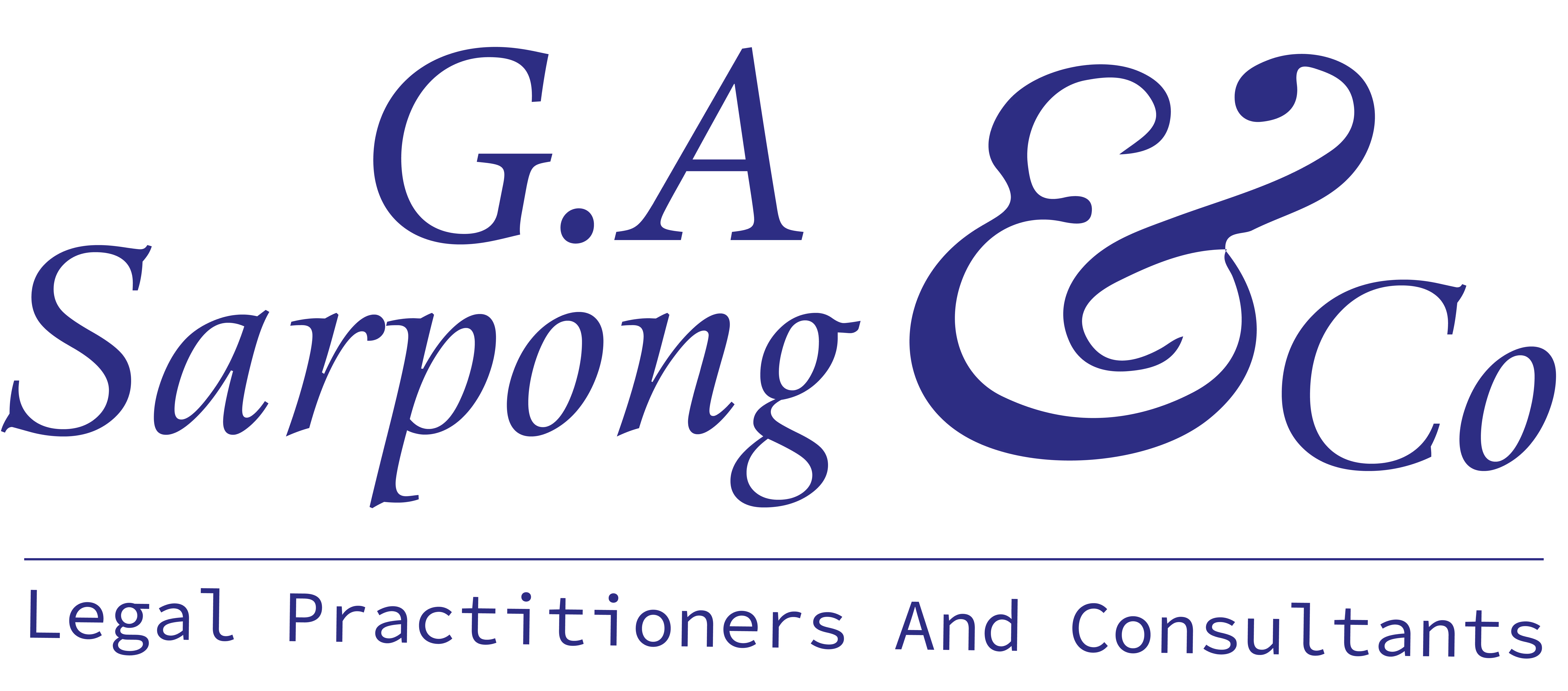
G.A.SARPONG & CO is a premier law firm in Accra offering effective Debt Collection services in Ghana, established in 1997, renowned for its membership in the World Law Alliance, serving clients across the United States, United Kingdom, China, and India.
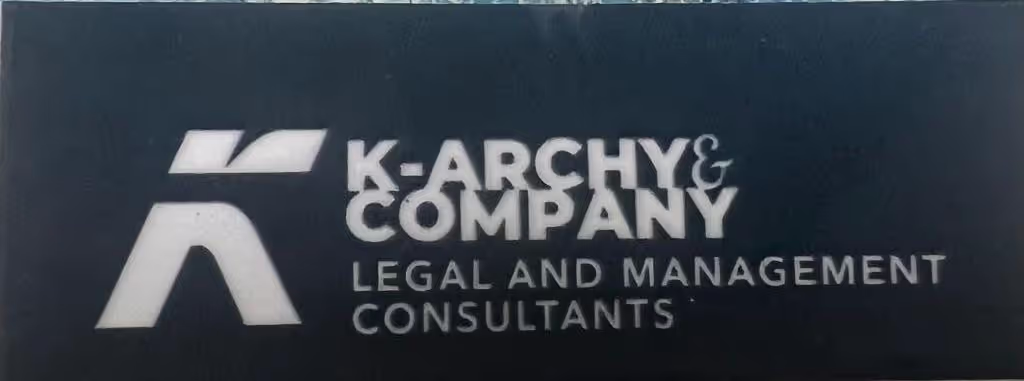
K-ARCHY & COMPANY is a premier law firm in Accra offering effective Debt Collection services in Ghana, positioning itself as the go-to partner for debt recovery with over two decades of experience, membership in the Ghana Bar Association, and multiple accolades.
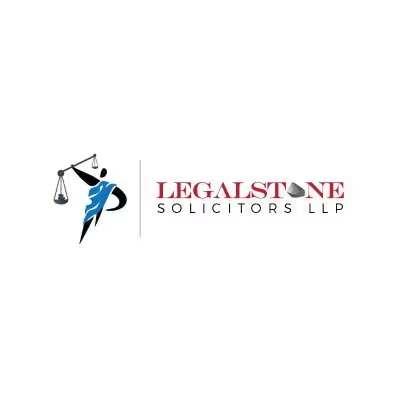
Legalstone Solicitors is a premier law firm in Accra offering effective Debt Collection services in Ghana, positioning itself as the go-to partner for debt recovery since 2016, with competitive pricing, cross-border expertise, and a commitment to excellence and integrity.

Zoe, Akyea and Co. is a premier law firm in North-Labone, Accra, offering effective Debt Collection services in Ghana, renowned for its 2002 founding, transparent pricing, and memberships with the Ghana Bar Association and Commonwealth Lawyers Association.

Pebble Law Consult is a premier law firm in East Legon - Accra offering effective Debt Collection services in Ghana, established in 2020 and a member of the Ghana Bar Association, positioning the firm as the go-to partner for debt recovery.
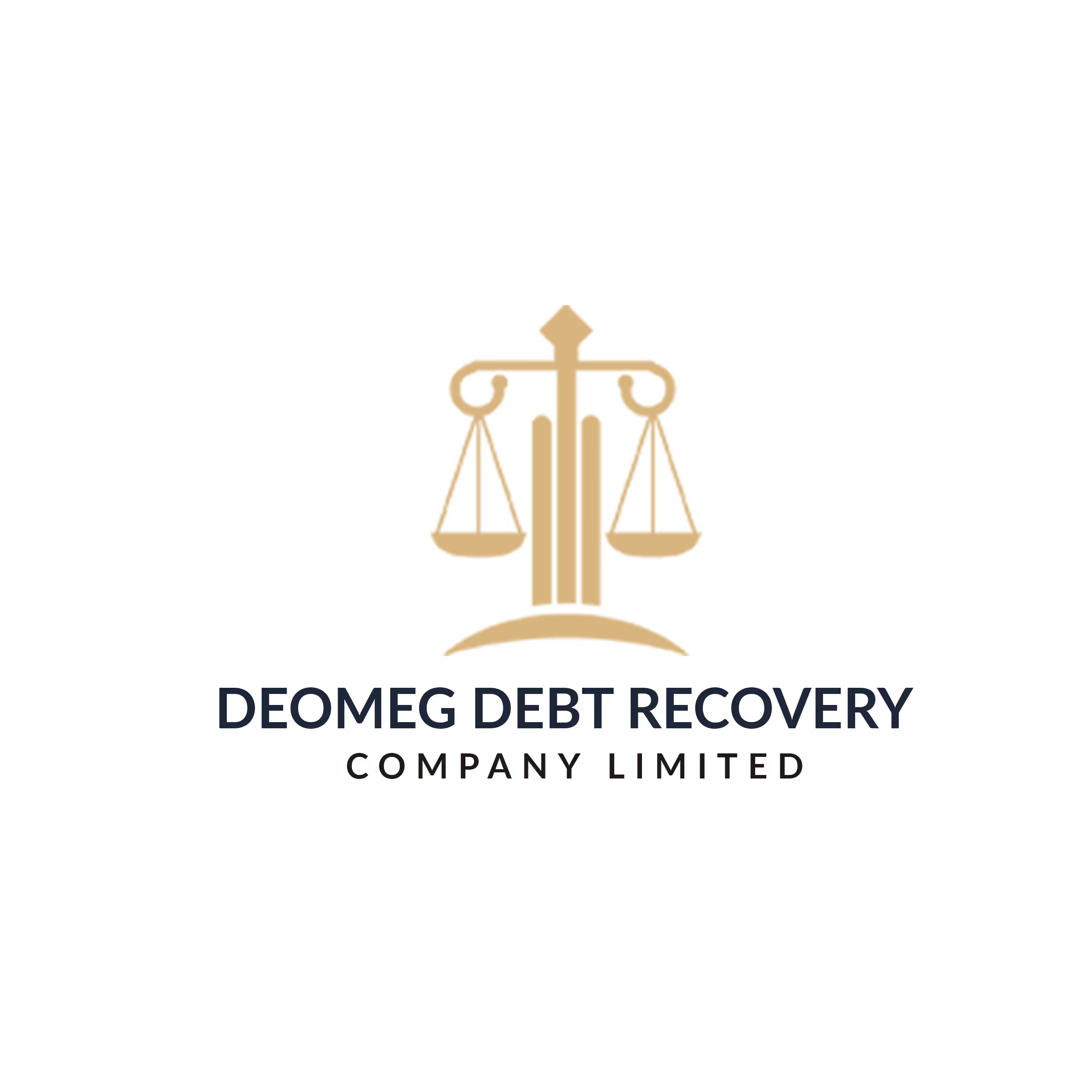
DEOMEG Debt Recovery Company Ltd. is a premier debt recovery agency in Nima offering effective debt collection services in Ghana, positioning itself as the go-to partner for debt recovery with a 90% litigation success rate, founded in 2018, and awarded the Best Cash Retrieval Business Award.
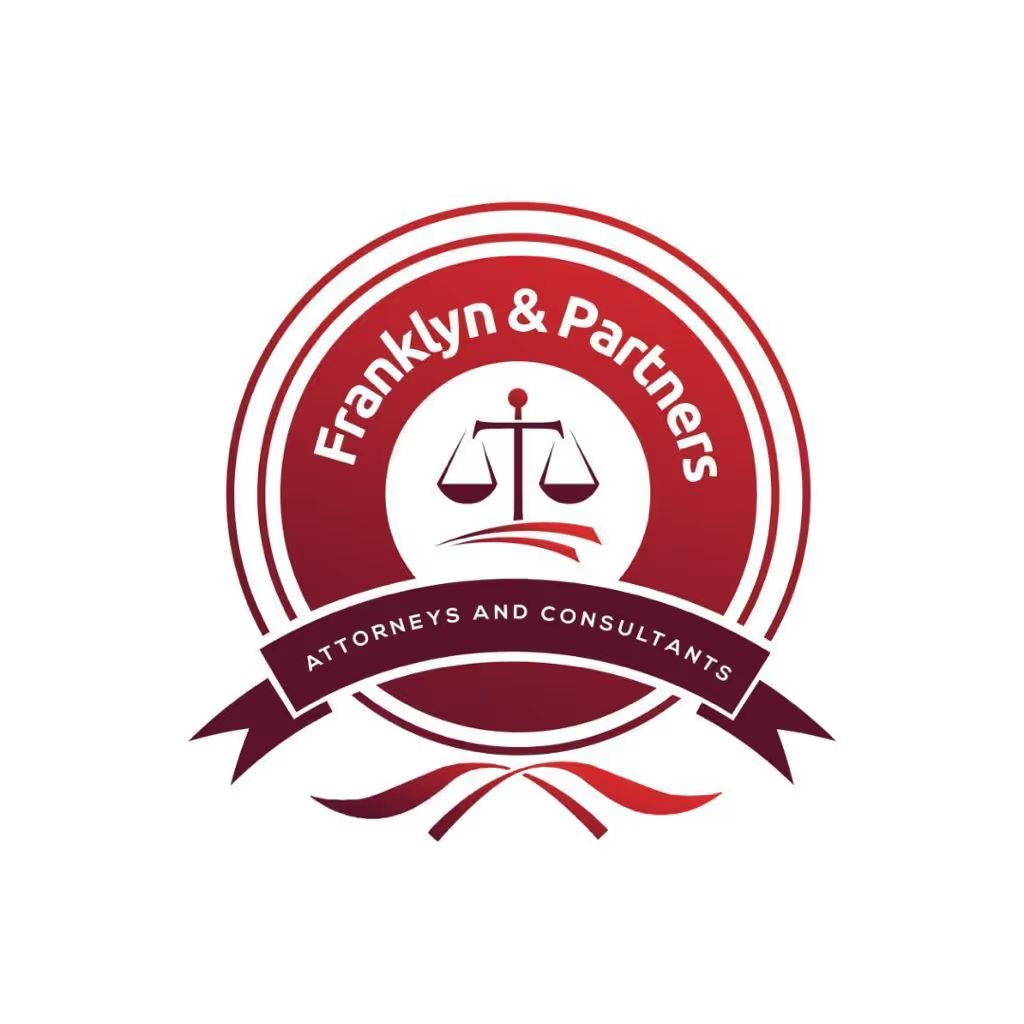
Franklyn & Partners is a premier law firm in Ghana offering effective risk-free debt collection services, positioning itself as the go-to partner for debt recovery with a foundation in 2021, accolades like the 2022 Leaders in Law Global Award, and exclusive Debitura partnership with No Cure No Pay terms.
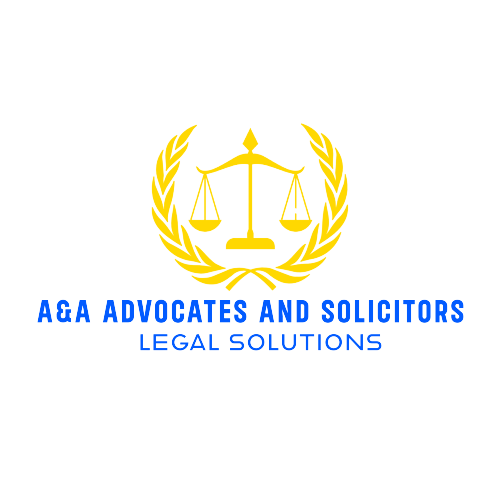
AA Advocates and Solicitors is a premier law firm in Accra offering effective Debt Collection services in Ghana, positioning the firm as the go-to partner for debt recovery, founded in 2023, and a member of the Ghana Bar Association and General Legal Council.





.svg)

.webp)
.png)

.png)
.svg)












.webp)